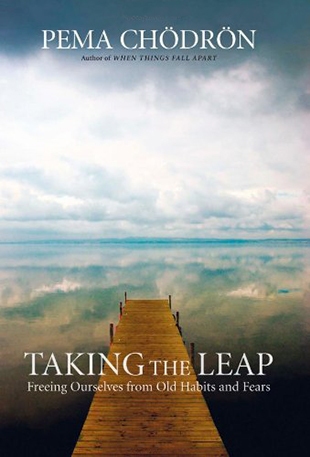Pema Chodron is the author of five books and resident teacher at Gampo Abbey, Cape Breton, Nova Scotia, the first Tibetan monastery in North America for Westerners. She is also a Living Spiritual Teacher on this website. In this absorbing and timely book, Chodron says that the moment has come for each of us to take the leap to do what we can to address the welfare of all beings and the survival of the earth itself.
But first we must deal with our own words and actions that are causing suffering. This involves "making a commitment to let go of old grudges, to not avoid people and situations and emotions that make us feel uneasy, to not cling to our fears, our closemindedness, our hard-heartedness, our hesitation." Being honest with ourselves, we can begin uncovering three basic qualities — natural intelligence, natural warmth, and natural openness. Chodron is convinced that by honestly dealing with our emotions and habits, we can change our ways and do a new thing.
At the root of all suffering and discontent is self-absorption and our fear of being present. In order to get relief from the pressures of life, we often turn to pleasure seeking, numbing out, and using aggression. Chodron discusses shenpa, teachings passed on to her by Dzigar Kongtrul. They consist of habits of mind that are so charged with energy that they "hook" us and propel us toward anger, blame, self-hatred, or addiction. Shenpa is created by our storyline, it comes with a dangerous undertow, and it always has consequences — many of which are not gratifying. Chodron shares a way of dealing with these emotions:
"There is a formal practice for learning to stay with the energy of uncomfortable emotions — a practice for transmuting the poison of negative emotions into wisdom. It is similar to alchemy, the medieval technique of changing base metal into gold. You don't get rid of the base metal — it isn't thrown out and replaced by gold. Instead the crude metal itself is the source of precious gold. An analogy that's commonly used by Tibetans is of the peacock who eats poison with the result that its tail feathers become more brilliant and glowing."
Everything in Buddhism is workable, says Chodron. By befriending our uncomfortable emotions, we are doing valuable training for the global issues which may confront us in the future. Take, for example, the fear underlying the hatred that lies behind cruel words or deeds. The author challenges us to pause and to get in touch with the energy of the emotion and to feel its destructiveness. She suggests that the next time you get worked up by a fixed-idea of anger, hatred, or violence, you experiment with looking at the sky. Take in the bigger perspective and the feeling of openness which is an alternative to a closed-mind bent on staying the same.
The process of escaping others we have an aversion to can be averted by practicing tonglen with people who push our buttons and turn us off. Chodron ends with:
"The motivation for presenting this material is not solely the wish that each of us might become happier. The primary intention is that we might follow the advice contained here in order to prepare ourselves to look beyond our own welfare and consider the great suffering of others and the fragile state of our world. As we change our own dysfunctional habits, we are simultaneously changing society. Our own awakening is intertwined with the awakening of enlightened society. If we can lose our personal appetite for aggression and addiction, the whole planet will rejoice."
